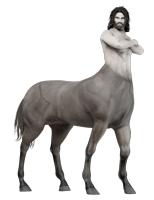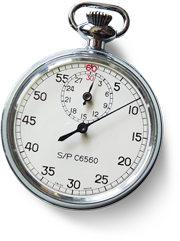Character & Excellence
The experience of excellence is a central part of human fulfilment and character — working hard, doing our best and persevering — is essential for personal improvement and realizing excellence. It follows that building a work character must be about developing ethics and a habit of excellence.
If work character had a motto, it would be Theodore Roosevelt’s famous observation: “To educate a person in mind and not in morals is to educate a menace to society.” However, the opposite of Roosevelt’s maxim is also true: To educate a person in morals and not in mind is to educate, if not a menace, at least a detriment to society. Who wants a mechanic, lawyer or an accountant who’s caring and honest, but incompetent?
Excellence and character matter in our pursuit of excellence.

Excellence is not an act, but a habit.

Wherever you go, go with all your heart.
Performance and Moral Character
To maximize the power of character is to define it to include the quest for excellence as well as the quest for ethics. Conceived in this way, character has two parts:
- performance character and
- moral character
Performance character is a mastery orientation. It consists of those qualities — such as diligence, determination, a strong work ethic, confidence, resourcefulness, resilience, adaptability and self-discipline — needed to achieve our highest potential in any workplace environment.
Performance character is not the same as performance. Performance is the outcome (the grade, the honour, the achievement), whereas performance character consists of the character strengths, such as best effort, that enable us to pursue our personal best — whether the outcome is realized or not. In the long run, performance character does maximize performance because it brings to bear the strengths and strategies by which we get the most from our natural talent.
Moral character is a relational orientation. It consists of those qualities — such as honesty, respect, fairness, caring, cooperation, and moral courage — needed for successful relationships and ethical behaviour. Moral character enables us to treat others — and ourselves — with respect and care and to act with integrity in our lives. Moral character also ensures that we do not violate moral values such as fairness, honesty and caring in the pursuit of high performance. Without strong moral character, performance character can easily go astray.
Rendering Character Relevant to Work
Conceptualizing character to include both performance and moral character makes work character quite important:
Our people:
- Need performance character (initiative, organization, goal-setting, perseverance, etc.) in order to do their best work.
- Develop their performance character, including the ability to take satisfaction in a job well done, as they rise to the challenges of their workplace.
- Need moral character (respect, fairness, kindness, honesty, etc.) in order to build the positive relationships that make for a supportive work environment.
Conclusion
Usually, most management teams look at work performance on purely mathematical terms. We however, look at work performance in a more integrated way. We believe that only if we integrate excellence and ethics, will our employees be prepared to flourish – at work and beyond.

Character matters, but it is commitment that counts

Without commitment you cannot have any depth in anything whether it’s a relationship, a business or a hobby.
We are committed to providing the best possible service to our partners to help them achieve their goals. Consequently, we expect the same level of commitment from our team members. It really is as simple as that.
Commitment therefore is the fundamental prerequisite that we look for in any recruit, irrespective to their role or function. Of course, their professional background and qualifications are important, as is their personal character, but the overriding defining quality that we look for is commitment. The good thing is that you either are or you’re not.
In return, our team members are rewarded with the opportunity of working within an exceptional environment, with a talented and committed team who share the vision of the organisation and who strive for excellence in all that they do – day in, day out.
Case Study
Brendon Rodgers (current Celtic manager, ex Liverpool manager)
The below is a summary of the approach that Brendan Rodgers took to his appointment as the manager of Liverpool FC, his responsibilities as manager of the club and the attitude that he expects from his players.
We believe that this aptly and succinctly explains our philosophy in terms of our responsibility as an employer and what we expect from our team members.
C– Commitment
O– Organisation
R– Responsibility
E– Excellence
It is the intelligence he continually communicates with his player. “I want commitment, not motivation, because motivation is fleeting, it goes by feelings.
You may get up in the morning and feel like you don’t want to do it, so what? You don’t do it? If you’re a life-saving surgeon and you’ve got five operations a day, and you work on motivation, you may be motivated for the first four, but the fifth one needs their life saved just as much, so you have to be committed to the cause.
Once there’s a commitment, I will then organise a plan for them to be the very best they can be. Not for me – for them, in order to improve.
I then say, it is your responsibility. I will give you all the tools, an elite environment, a high-performance focus, we give you the best people: medical, mental, technical, tactical and I will manage that.
All those factors will allow you to perform to a level of excellence. I tell all the players: ‘the crown is on your head, you’re the king of your destiny.’
